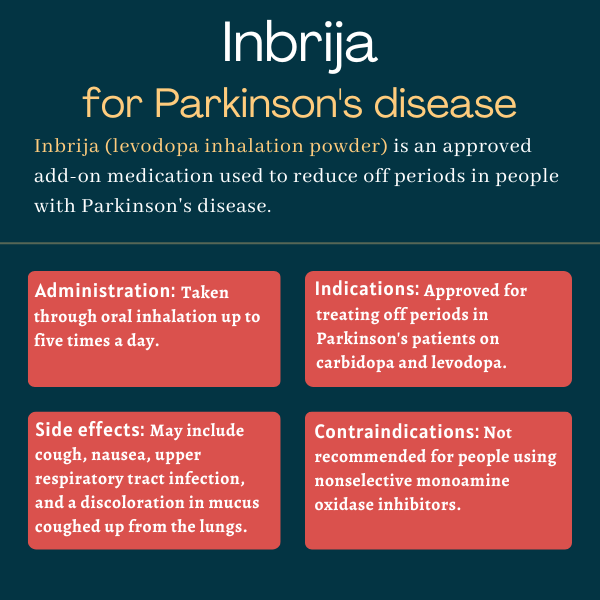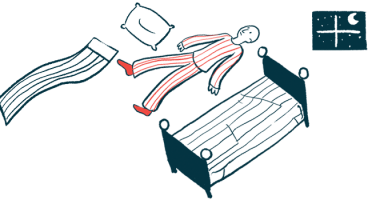FAQs about Inbrija
The U.S. Food and Drug Administration (FDA) approved Inbrija in December 2018 as an add-on treatment for off periods in Parkinson’s disease patients on levodopa and carbidopa. That decision made Inbrija the first inhaled levodopa therapy in the U.S. for Parkinson’s off episodes.
Clinical trials of Inbrija have not included pregnant patients, so the therapy’s safety in such conditions remains largely unknown. However, animal data has suggested that it may cause fetal harm. Patients should talk with their doctor about any plans for being pregnant while on Inbrija.
Some people on levodopa-based treatments have reported extreme somnolence or falling asleep during daily activities. Thus, until patients know how the medication affects them, those starting starting Inbrija should avoid driving, operating machinery, or other activities that may result in harm if they suddenly fall asleep.
In the trials that supported Inbrija’s approval, patients experienced reductions in motor symptoms during off periods as early as 10 minutes post-dosing, with significant effects being observed after 30 minutes. Still, as each person can respond differently to a medication, patients are advised to talk with their healthcare team on how Inbrija can help in their particular case.
While hair loss and weight gain have not been reported as side effects of Inbrija in clinical trials, patients may experience weight gain due to the therapy’s potential to cause impulse control disorders, including compulsive eating. Hair and weight loss are reported as potential side effects of the therapy on its European label. Patients should talk with their healthcare team if such events occur while they are taking Inbrija.
Related Articles

 Fact-checked by
Fact-checked by 








